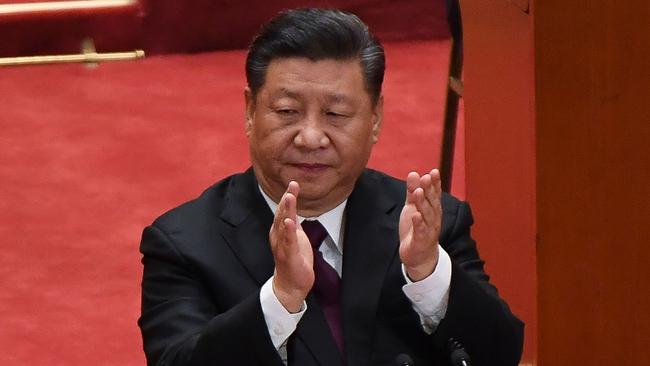China’s economy open ‘but party will remain in control’
Xi Jinping said gave a landmark speech yesterday celebrating the country’s 40 years of reform.

China would continue with its strong Communist Party control of its society as it sought to further open up its economy, China’s President Xi Jinping said in a landmark speech yesterday celebrating the country’s 40 years of reform.
The speech, made at the Great Hall of the People on the 40th anniversary of the reforms made by Deng Xiaoping in opening the economy in December 1978, was a signal that the Communist Party intended to strengthen its control over China and its people while focusing on delivering further improvements in the country’s standard of living.
In his 90-minute speech, which did not contain any new announcements and was focused largely on his domestic audience, Mr Xi highlighted the country’s economic achievements, including lifting more than 740 million people out of poverty and building the world’s largest social security system with an age pension covering more than 900 million people and medical insurance for 1.3 billion.
China had also become the world’s largest exporter and the world’s largest holder of foreign exchange reserves.
Mr Xi said China now stood “tall and firm in the East” following the “unprecedented miracle” of the past 40 years and would continue to step up its role as a player on the global scene.
But he said its rise from near poverty to the world’s second largest economy would not represent a threat to any other country, with China having no intention of using its economic power to seek dominance over other countries.
“China does not represent a threat to any one country,” he said. “China will never seek hegemony.’’
But he said “no one was in a position to dictate to the Chinese people what should or should not be done”.
The speech, which made no reference to China’s trade war with the US or the trade negotiations with the Trump administration, was seen as a disappointment for observers who had been hoping it might signal Mr Xi was planning further reforms of China’s economic system, which is still dominated by state-owned enterprises. The private sector is now also expected to have Communist Party representatives at senior levels.
“We will change what we can change, but we definitely won’t change what we cannot change,” he said in a reference to the regulation of the Chinese economy.
Mr Xi said Chinese people needed to get strongly behind the Communist Party as China could still face “risks and challenges and even encounter unimaginable storms”.
While Mr Xi said China would continue to open its markets to foreign investors and traders, the speech made constant references to China’s economic rise as reaffirming the success of the country’s unique brand of “socialism with Chinese characteristics” and having “Marxism as our guiding ideology”.
He said Chinese people needed to “uphold the authority of the party and its centralised leadership”.
Mr Xi said China’s economic development of the past 40 years had been a major factor in world economic growth, serving the cause of world peace and development.
“China has moved to the centre stage in the promotion of world peace and as a defender of the international order.”
He said China had bid farewell to the problems which had plagued its people for the past thousand years including hunger, shortages and poverty.
Mr Xi said China’s economic success had showed the benefits of opening its economy but he said its future would be lived using China’s own model of having an economy and a political system with firm Communist Party control.
“The belief in Marxism, the faith in socialism with Chinese characteristics and the confidence in realising the great rejuvenation of China are all powerful spirits that guide and support the Chinese people to stand up, get rich and strengthen their power,” he said.
Mr Xi said there was now a “powerful energy” in China which would “provide an unstoppable strength for the great rejuvenation of the Chinese nation”.



